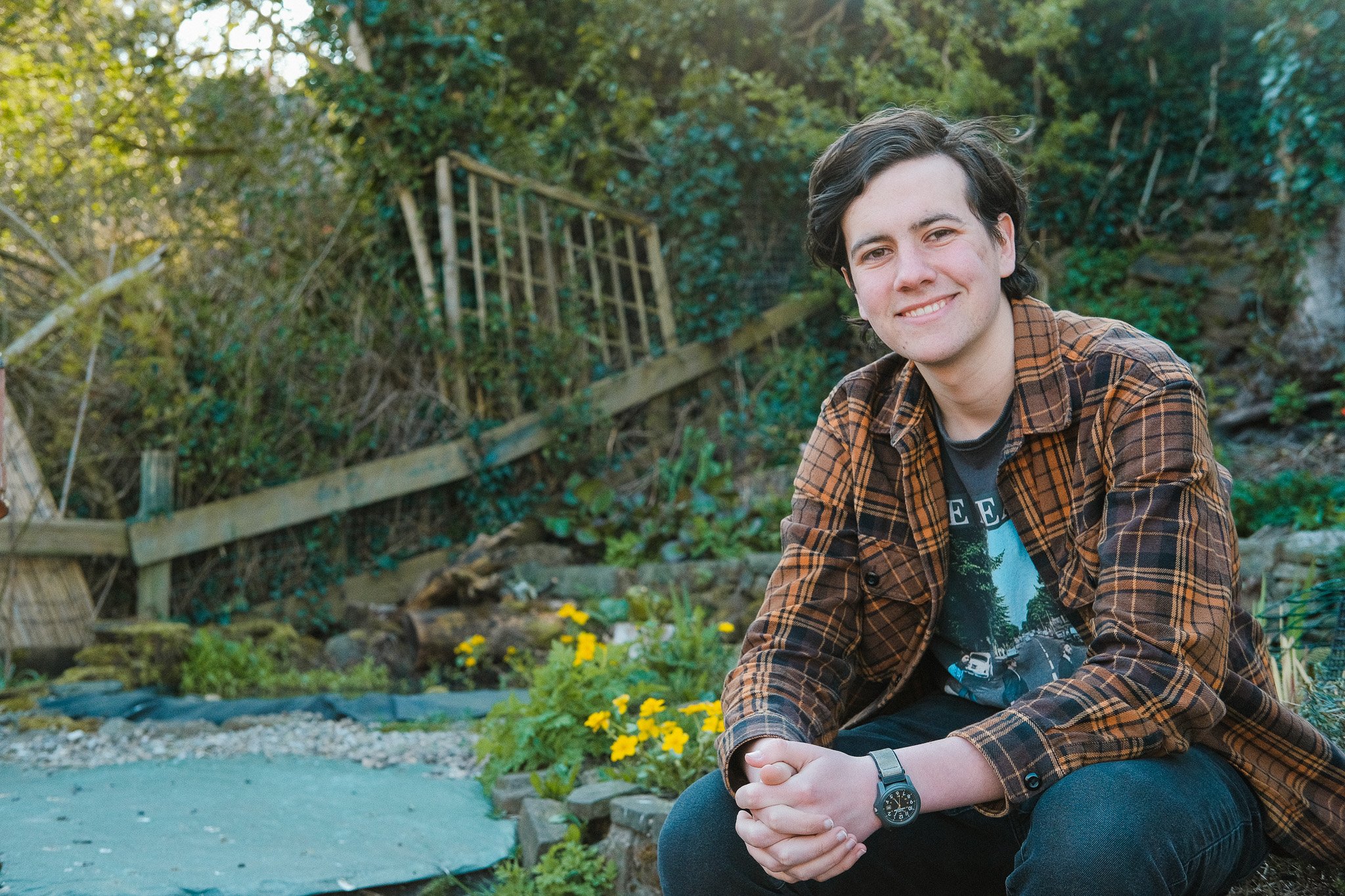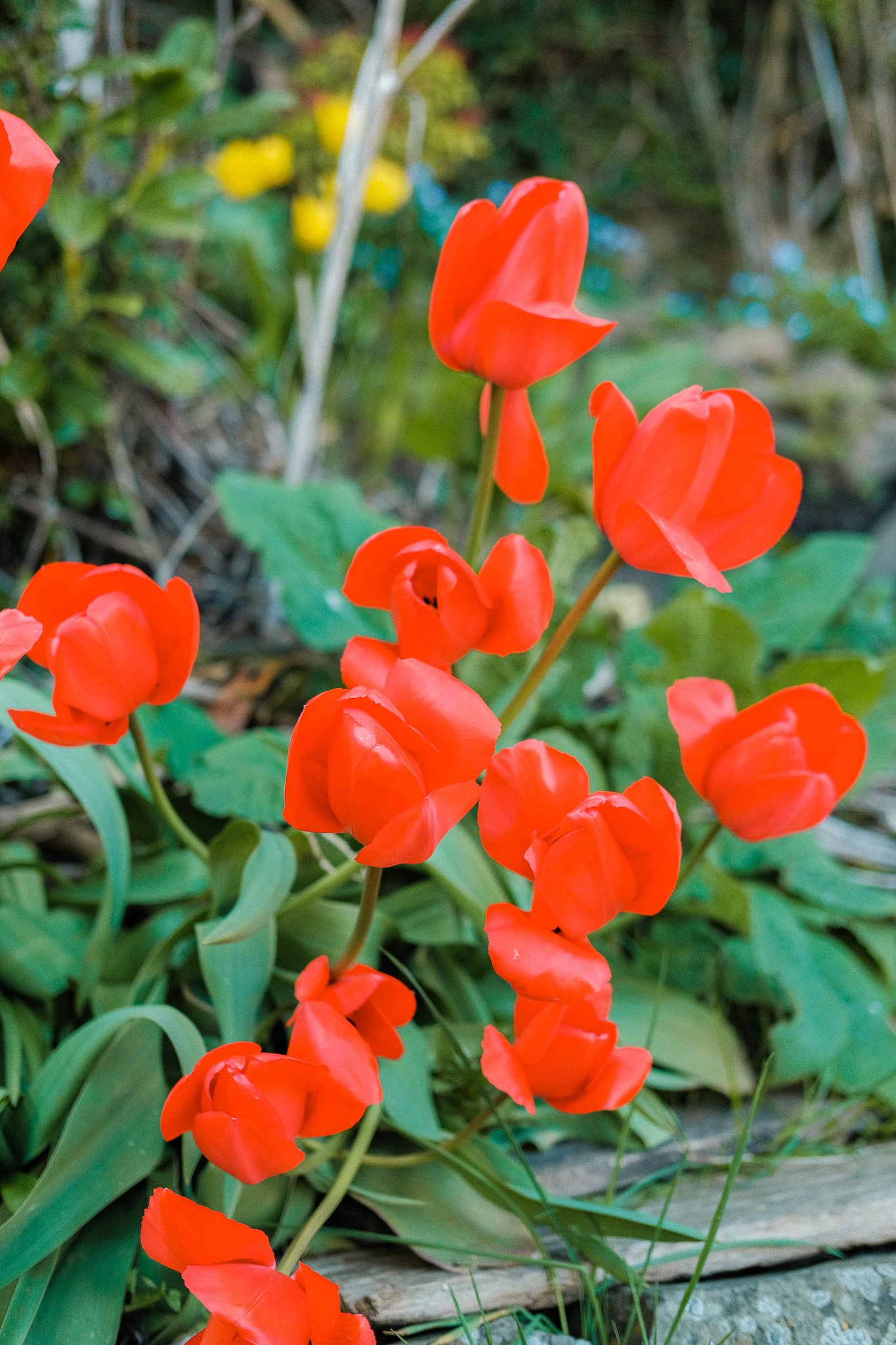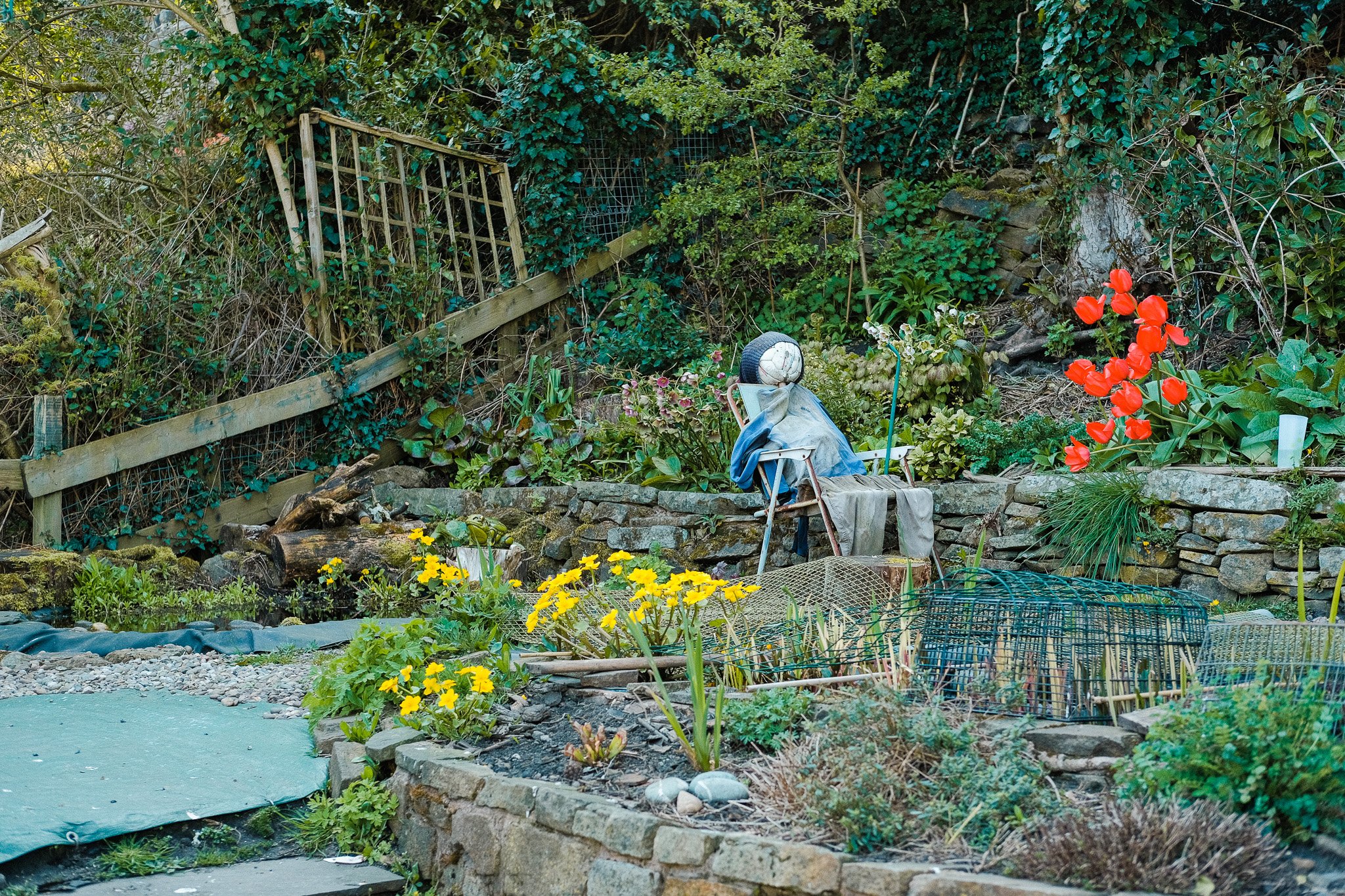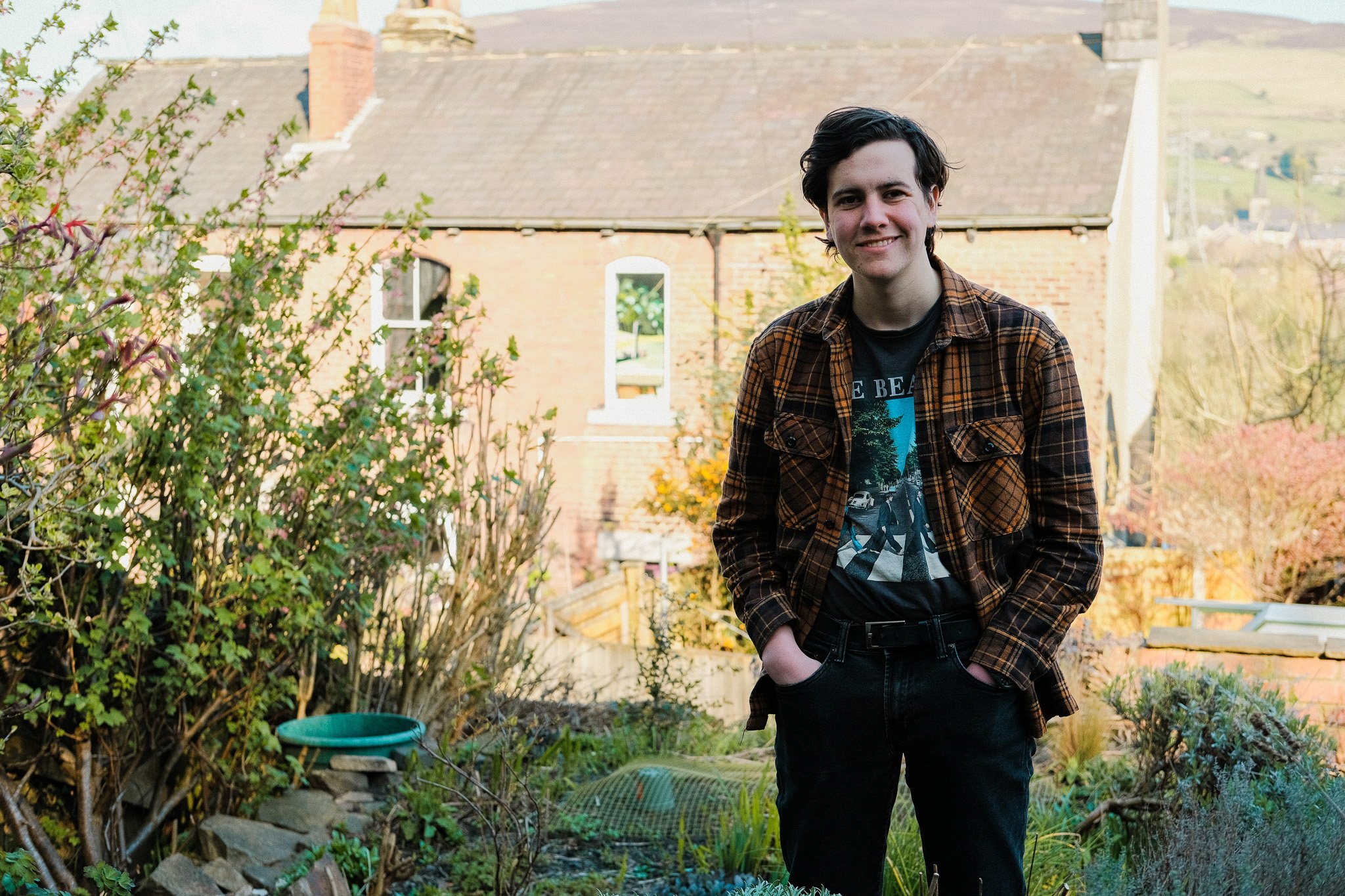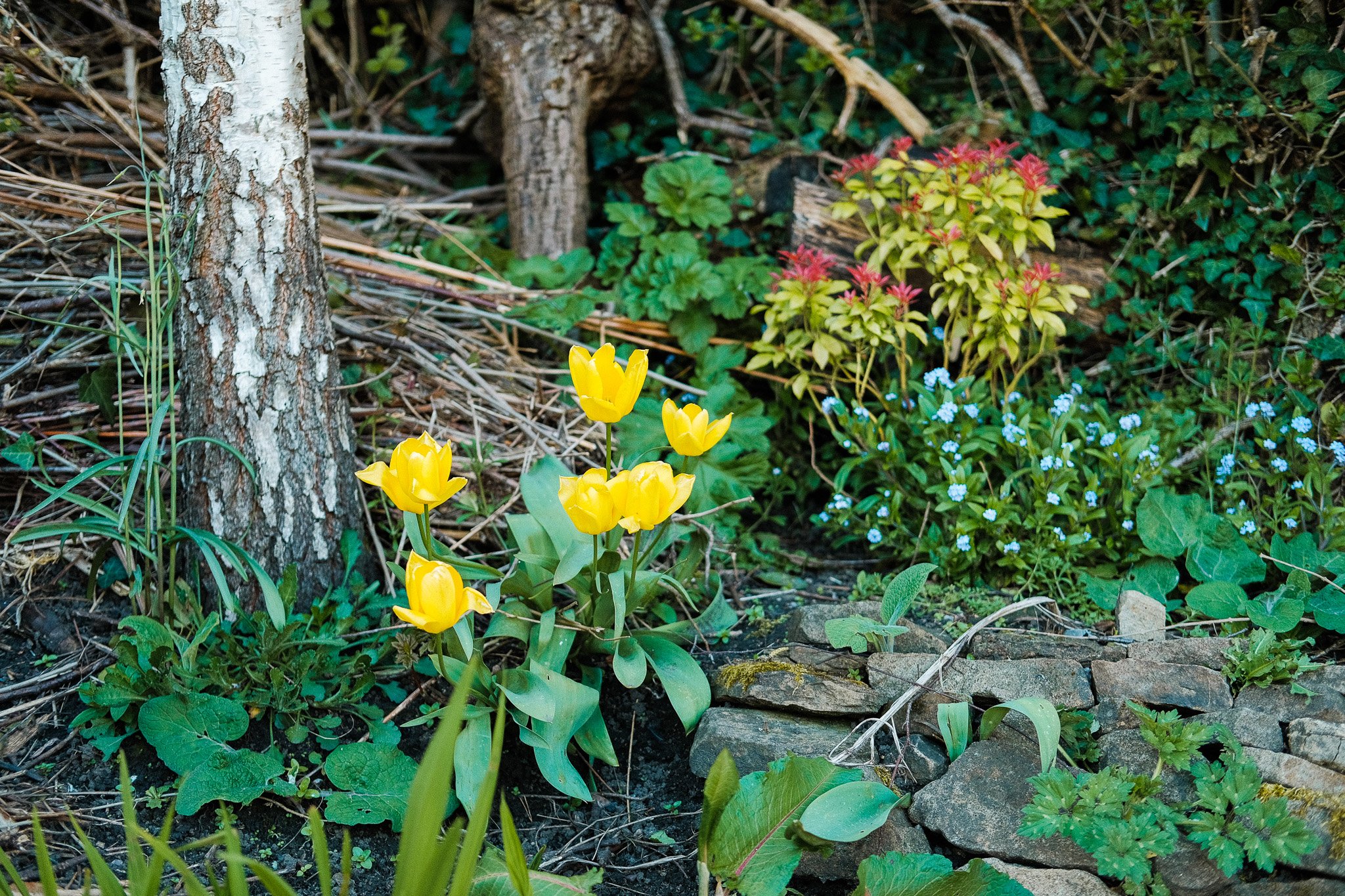Meet George: the 17 year old nature expert inspiring Manchester’s next growing generation
Green Fingered George - or, just George for short - is a 17 year old nature lover, gardening whizz, birdwatcher, and RSPB young ambassador, which is the quite the résumé for someone his age! By making use of multiple social media channels, George began sharing his stories, gardening tips, and his experiences of being in nature to create a blooming social media presence that grows more popular by the day.
George’s passion for all things wild is truly infectious, so we caught up with him to find out more about how he got started on his growing journey, the advice he’d give to others looking to connect with nature, and how our green spaces can play a crucial role in tackling climate change…
“Everybody should have some connection to a green space, whether you have acres and acres of land or a windowsill.”
How did you get started growing?
It was mainly my Dad who did a lot of the gardening here, and I was always involved from a young age. And then as I got older I started looking at landscaping, building our pond particularly, I was quite involved in that. My mum did events like harvest festivals so I was involved in that, doing things like apple pressing and seed planting. And that kind of just led on to wanting to inspire other people to get involved and follow the same path I did really.
How early did you begin developing a social media presence?
I won the RHS young school gardener of the year in 2014, and from there I started the blog and social media and from there my platform’s grown, and I’ve met lots of people who have the same interests as me and building up a little network of gardeners.
What do you enjoy about having your platform?
Connecting with others is always nice because you don’t meet many gardeners who are teenagers, so it’s always nice to meet people who share your interests and share these platforms. For me, on a personal level, it’s been great to meet similar people with those shared interests.
It doesn’t seem common to meet many 17 year old gardeners who have such a big passion for nature…
In a modern world you don’t have as much control over the food you eat, you don’t really have much of a connection or know where your food comes from, and we don’t get out as much or connect with nature as often, so there’s definitely this disconnect. Back in the day you’d go walking off somewhere and always be out and about, and we’ve lost that a bit. It’s sort of been helpful with social media though, because the experiences that young people are getting from being out in nature are being shared and others are getting interested in it. You see a lot more people walking around now, especially since COVID, which is great - but it’s important that people understand and respect nature so that we can all share it and all love it.
What are some of your favourite spots around Manchester to explore?
Up on the moors. I live just on the edge of Saddleworth Moor and Dovestones, and I go walking up the quieter side where there aren’t as many people and I can have it all to myself.
What would say are some of the benefits of being connected to nature?
Well, I can remember the first time I saw a goldfinch when I was about five, so like twelve years ago. I can’t remember what time I went to bed at somebody’s house two weeks ago. I can’t remember anything after nine o’clock! But I can remember things from years ago about having experiences in nature. It’s like it ingrains in some part of your mind, I just find these memories stick with you whenever you have a beautiful experience in nature.
How would you try to encourage people to engage with nature more?
In your garden, it’s about getting to know it as a personal space. You can read as many books and watch as many gardening TV shows as you want, but you’ll be more successful with gardening by just getting out there and making mistakes, and you’ll get to know it on a personal level. Nature’s such a complex thing and we only understand a small part of it, and you’ll only discover it by getting to know your garden by yourself. In terms of walking, look for those little nifty green spaces that you never even knew were there. Get a map of your local area and and go “oh that woodland looks nice”. And then you go for a walk in it and find there’s no-one else there, but it’s beautiful. Just having a little space that you can almost call your own in a way, and get to know it and get to know the wildlife, get to know the plants, that’ll create a special experience.
Have you made a lot of gardening mistakes in your journey?
Oh yeah definitely. I’ve probably had more mistakes than successes! Eventually it balances itself out. The amount of carnivorous plants and cactus that I’ve gone through in the past few years is unbelievable, but you end up finding your own techniques. As long as you learn along the way, you’ll move forward.
What advice would you give to people who want to start growing more?
Grow organically and grow with nature in mind. People often have visions of sitting in their gardens with birds and bees and butterflies flying around, but they also then put weedkiller on the lawn and use pesticides, which just won’t work. As much as people might not like spiders or ants or whatever, they all form part of that web, and you can’t have bees, butterflies and birds without having ants, slugs and snails. As a gardener, obviously there’s a lot of anger towards slugs and snails and things, but you just move them to where you’ve not got any precious plants, just put them in a hedge. It’s about gardening with a respect for nature, and then nature will reward you.
How do you appreciate garden spaces in relation to climate change?
Our gardens can either contribute to climate change or they can be the salvation of climate change. Not everyone has a garden and I appreciate that, but everybody should have some connection to a green space, whether you have acres and acres of land or a windowsill. There’s so much we can do to mitigate the effects of climate change and adapt to live with them, using a water butt for example to mitigate the effects of droughts and flooding, gardening with peat free compost, planting trees - even if they’re small shrubs - and doing anything you can to help the biodiversity of your area. If everyone put bee friendly plants in their gardens for example, there’d be a massive ecosystem of bees, and together we can create something that can really benefit nature.
Is that something you often think of, in terms of how individual actions can collectively make a wider difference?
Oh yeah definitely. If every garden in the UK was a raindrop, we’d collectively make a lake. The collective power of gardens is massive, because they’re a massive collective green space. We have our nature reserves and national parks, but our gardens are a huge national park spread across the entire country when you look at them. And if we can make that park as wildlife friendly as possible, it’ll have a massive impact on the biodiversity of the whole country.
What are your thoughts on climate change more broadly?
As a young person the main worry I have is that it’s my future, and that whatever way we deal with this we’re going to be the ones to pick up the pieces. A lot of the people in charge won’t see the result of it, and it won’t affect them. It’s a pretty widely discussed amongst my age group really, people talk about Love Island more than they do about climate change - which is probably to be expected - but when I started college a lot of people were talking about it which I though was surprising. You don’t meet many people my age who don’t care about climate change actually, and even less who don’t believe in it which is encouraging. Obviously there’s only so much power we have, but collectively we can make a massive force, we just need everyone working together.
What does climate change mean to you?
If you look at the world on a wider level, we all have our own lives and individual things that we like to do. But at the end of the day we all live on one planet - except for about twenty people on the International Space Station. We all share this planet, and whether your favourite biscuit is a Jaffa cake or whatever, the impacts we all take will inevitably affect the whole planet. Every aspect of my life falls into the nature around me, and I don’t want to lose it. It’s a scary issue and there’s so much anxiety that people face, and the effects are often hard to envision. But I try to keep hope that we can reduce it as much as we can, and that maybe we do have a shot at changing things.




